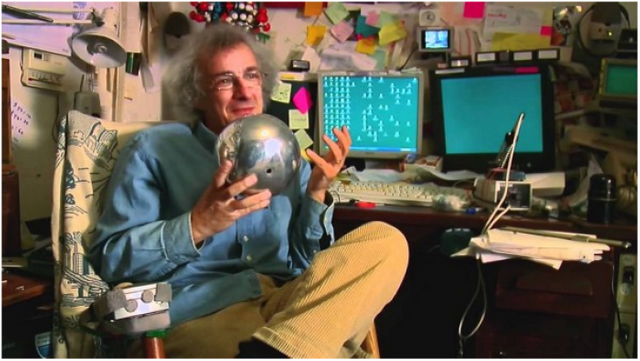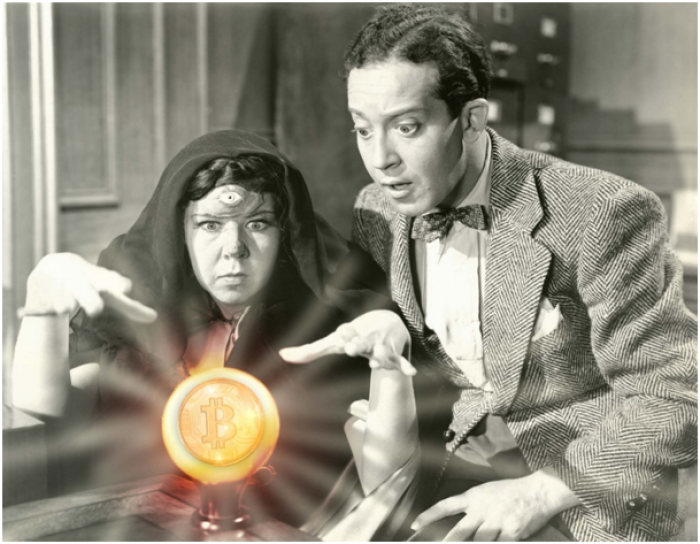What Will Bitcoin Look Like in Twenty Years? #Part 1
Part 1
Prediction is a tricky business.
It’s so easy to be wrong and so hard to be right.
But that’s exactly what we’ll do here. Since we’re rapidly approaching the ten year anniversary of Bitcoin’s whitepaper publication, I’ll attempt to project out twenty years to see the evolution of Bitcoin, blockchain, alternative cryptocurrencies and decentralization.
This is the type of article that will look unbelievably foolish or incredibly brilliant when I’m old and gray.
I don’t care. I’m going for it anyway.
I’m also going to go much, much deeper than “Bitcoin will go to zero” or “Bitcoin will become the reserve currency and be worth $1,000,000”. That’s not really saying all that much and anyone can do it.
Instead we’ll look at how the technology will transform and how society will transform with it.
I’ve got a decent track record of successfully predicting future trends and technology but nobody gets it 100% right. Arthur C. Clarke, one of the greatest sci-fi writers of all time, saw the coming of satellites and GPS, as well as the cloud, the Internet and telecommuting but by his own admission he overestimated the importance of rockets and failed to see the importance of a prototype laptop a company gifted to him to write his next novel.
Magnum Chaos represented by Lorenzo Lotto, at the Basilica di Santa Maria Maggiore in Bergamo.
 read below
read below @chnorris
@chnorris
Chaos theory tells us it’s impossible to predict the future.
But that’s not entirely true.
We can never see black swan events or completely unexpected technology (try explaining a computer and the Internet to an 18th century farmer) but we can do a kind of Monte Carlo analysis of tomorrow and see the major pathways spinning out into infinity.
Few people can do it well.
In fact, most people get the future laughably wrong so before we leap into our predictions, we need to understand why so we can try to avoid the same mistakes.
This Internet Thing will Never Work Out
The first reason people get the future so wrong is because they dedicate about five minutes to looking at something before they form an opinion on it.
That isn’t thinking.
Homer’s brain.

 read below
read below @chnorris
@chnorris
That’s the primordial lizard brain running a mental heuristic that’s absolutely incapable of understanding anything new and novel. It’s only good at attack, defense, finding food and shelter and avoiding boredom. It’s a survival machine.
Unfortunately, many people live almost their entire lives at this level and their opinions are worth zero when it comes to seeing new trends and developments.
The second major reason people get the future so wrong is it goes against everything they understand about the world. Think about a company like Kodak who simply refused to see the power of digital film because they’d built up a business over a hundred years on the back of chemical film. They had every advantage and they blew it. They mistook the past for the future and they paid a heavy price by going bankrupt as the market roared past them.** To see the future you have to be able to step outside of yourself, forget your past successes and see beyond your current understanding.**
A third major reason people fail to see the future is because it challenges their position of power. That’s why oligarch banker, Jamie Dimon, and a prince from a country that just allowed women to drive last month, all see Bitcoin and cryptocurrencies as a “fraud” or a “scam”.
They literally can’t see clearly because they’re the main beneficiaries of the current system. They don’t want to see. So they engage in a kind of information warfare, even if it’s unconscious. It’s nothing but a mental defense mechanism. The rise of new ways of running the world means their position is under fire and they’re terrified.
Asking these people about Bitcoin is like asking a taxi driver what he thinks about Uber or a horse and buggy manufacturer what he thinks about cars. Their opinions are worth less than nothing.
The fourth major reason people screw up predictions is because they mistake their opinion for reality. There’s what you think about the world and there’s actual reality and they’re often not the same thing. One is the map and one is the territory. Don’t mistake the map for the territory.
Take this now infamous article by Clifford Stoll from Newsweek in 1995 that declared the Internet a total failure poised for imminent collapse. Stoll writes:
“Visionaries see a future of telecommuting workers, interactive libraries and multimedia classrooms. They speak of electronic town meetings and virtual communities. Commerce and business will shift from offices and malls to networks and modems. And the freedom of digital networks will make government more democratic. Baloney.” [Emphasis mine.]

Clifford Stoll: I see nothing but the shadow of my opinions in Plato’s cave.
Reading that quote it’s impossible not to grin ear to ear as feelings of tremendous superiority wash over you. What an idiot! Who didn’t see the Internet coming?
Answer: Almost nobody.
END OF THE FIRST PART @chnorris




.jpg)


@chnorris good work with part 1. Is humorous and insightful. Putting Bitcoin to one side for a moment, are there any cryptos you feel might surpass the price of Bitcoin one day? There's so much hype around Bitcoin at the moment, that every Tom, Dick & Harry is jumping on board. In today's episode of Crypto Nights @alexmavor ask the question whether it's even too late to buy Bitcoin now. One you might find interest, check it out!
Up-voted
Anton
Thank you for Using #promo-steem tag, Promote steemit by inviting your friends and your family!
It will look kinda like this
